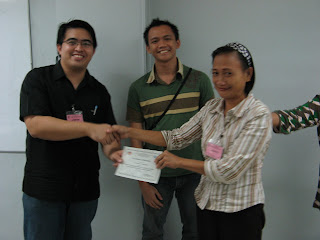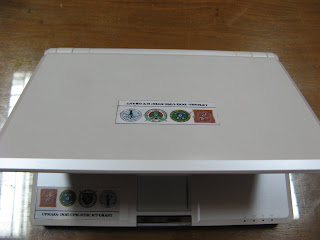


On November 17, 2008 a lecture on Alcohol Abuse and Rehabilitation was given by Dr. Allan Dionisio of the National Poison Management and Control Center from UP-Manila to the Provincial Health Office, PNP, and other government employees and health workers about 800km away in Basco, Batanes. This lecture, an e-learning session aimed at improving health care at the grassroots level, is part of the telehealth program of the UP Manila National Telehealth Center in partnership with the province of Batanes. Using the free software, skype, Dr. Dionisio not only was able to deliver his lecture, but also had a lively question and answer interaction with the audience in Basco. This session is very appropriate since Batanes, with a an approximate population of 17000 is the number 2 consumer of gin nationwide.
While about 12 km from UP Manila, in the Telecommunication Office in Quezon City, at the pilot site of the eSkwela project of the Commission on Information and Communications Technology (CICT), CICT director for field operations Maria Tess Camba, International Development Research Centre (IDRC) of Canada Program Manager (telecentre.org) Florencio Ceballos, OneRoof VP Miguel Raimilla and CICT and e-Skwela managers and learners observed Dr. Dionisio and the audience in Batanes again using the simple technology of the internet through skype. Prior to the lecture, Dr. HR Aujero, Coordinator for Field Operations of the National Telehealth Center introduced to the IDRC, CICT, and eSkwela representatives the initiatives of the National Telehealth Center. Assisted by Project Assistant Al Merca and Research Assistant Engr. Randy Fernandez, a three-point connection was established allowing all sites: National Telehealth Center- Basco, Batanes- Telof to see and interact with each other. Representatives from IDRC and CICT noted the innovative way of sharing knowledge using free software transcending limitations on location and limited connectivity. Afterwhich Mr. Ave Mejia presented the eSkwela project of the CICT which provides ICT-enhanced educational opportunities for out-of-school youths and adults.
Apart from e-learning, the National Telehealth Center, helps Batanes in patient care through e-medicine and in improving patient data management at the Rural Health Unit level through its e-records, CHITS (Community Health Information Tracking System)













































